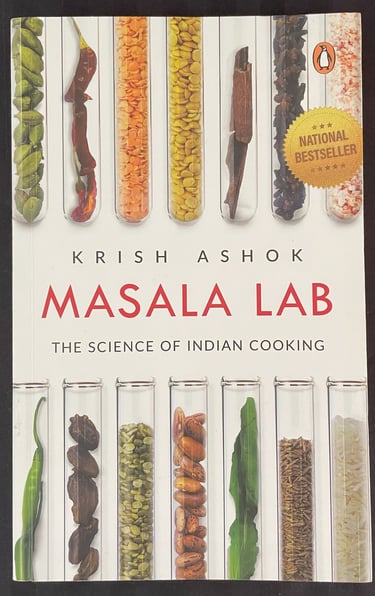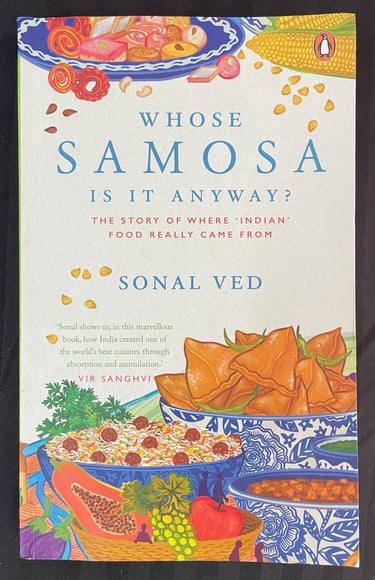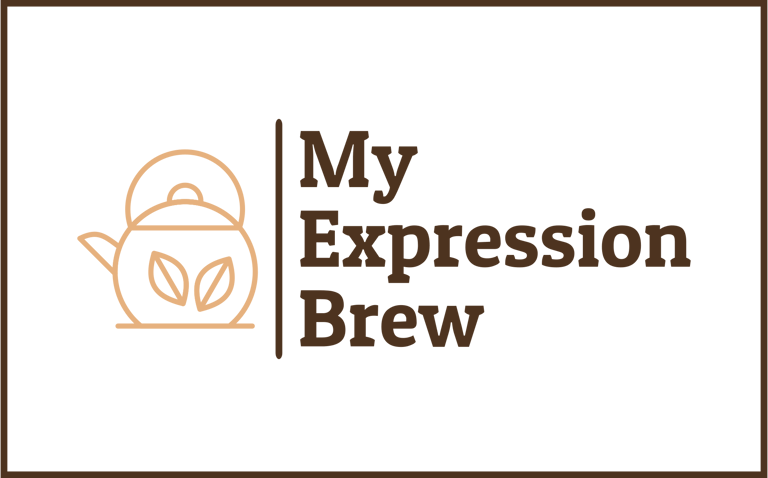Exploring Food, Kitchen, and Culinary History: Insights from a Food Technologist
Books on Science behind Indian cooking, Culinary History of India and more
BOOKS
Twinkle Suri
3/18/20245 min read


As a food technologist, I have always been fascinated by the intersection of science and culinary arts. Having read so many books on Food Science during my education, it is interesting to find books related to the filed that is written for the people to read in leisure and out of interest and not as a subject, where you will be tested in the end of the semester. The rich history of food and its preparation techniques provides valuable insights into the evolution of human civilization and the development of our taste buds. And especially wen it comes to country such as India, where the food diversification is inexhaustive and spread like sunlight in the sky, it becomes interesting to read the origin of ideas and directions as I myself 'trouve' through different food recipes in my kitchen and on the internet. In this blog post, I will recommend some insightful books that I've read in the past weeks which delve into the world of food, kitchen, and culinary history of India; this time, from Indian authors.
1. "Masala Lab: The Science of Indian Cooking" by Krish Ashok
Krish Ashok is an engineer and that's exactly what he provides to his readers in a very subtle, relatively more non scientific and easy manner through his book. This is a must-read for anyone interested in the science behind most of the cooking happening in the Indian kitchen. This book explores the chemical reactions, physical transformations, and biological processes that occur during food preparation under various cooking processes such as pressure cooking, frying, searing etc. The book covers vide range of Indian cooking methods and the science behind them, as well as simple techniques to improve and manage on improving the cooking if you are a a novice cook like me in the kitchen. Ranging from boiling of potatoes to making a simple dal to searing meat and smoking, this book doesn't leave any topics uncovered. Though I found that the science and gastronomy related to the sweet dishes of Indian cuisines was not much explored, yet the explanations given on the other, almost all savory cooking skills and dishes is refreshing to read because o the way it is written. The meticulous research and engaging writing style make this book a treasure trove of knowledge for food enthusiasts and culinary explorers.
As a food technologist, this was a sweet read and a short and crisp recap to various chemical and physiochemical changes that are undergone as food processing (or cooking) takes place. Also, what I found interesting was that it left certain impression on me, certain ideas also, that I still can very easily recall when i am working in the kitchen, to understand things like mixing and adjusting of different flavor profiles, the time that i must give to cooking certain specific ingredients and what might work with what or just for a fact on how i can or should improve the taste of certain regular things that form a staple in our Indian diets. From the Maillard reaction that gives food its delicious browning to the role of enzymes in tenderizing meat, this book takes care of my science background knowledge and yet provides me something more as an amateur cook. Weather you are a professional or a curious home cook or someone like me, transiting and swinging between the two at times, this book will deepen your appreciation for the art and science of Indian kitchen cooking.
2. "Whose Samosa Is It Anyway: The Story of where Indian food really came from" by Sonal Ved
This book explores the relationship between food and human evolution, especially evolution of Indian foods that we see today all around us and Indian cuisine that is practiced everyday in our regular households. While not strictly written from a food technologist's perspective but more from a food archeologist's point of view, it offers valuable insights into the historical context of culinary practices in India since long. Sonal Ved explores topics such as the influence of social factors on taste preferences, how the evolution of human kind and the influences of invaders/ traders that came to Indian and stayed here, affected our way of cooking, the ingredients we cook with as well as the psychology behind using and adapting to such stances. She tells very well in the beginning that the history of Indian cuisine is difficult to decipher in a small book and cannot be contained for it is vast and is influenced from (quite literally) all over the globe, yet tries the very best to talk and gather information as much as she can. This is another thoroughly researched book and it gave something new to a Food Technologist, who knows the science today but not the history behind. And for the Food Enthusiast in me, this is holistic, what this book adds to my existing knowledge. The book describes the transformative power of cooking in Indian history in such a story-telling format. She also delves into the archaeological evidence and scientific research to support certain points in the book, every now and then, painting a fascinating picture of our culinary journey as Indians. It also somewhere highlights the integral role of food in our evolutionary story over the time since Harrapan civilization that we have endured and gone through.
The chapters that I enjoyed the most in this book were the last two parts - "Traders and Conquerors" and "Conclusion". Now that is specifically because of the fact that I am not a history student (and when I was, I was a poor one) o it became difficult to go around the map this book tries to beautifully curate to explain the history of how the Indian food came about. But due to my educational background, close proximity to the time just before "our" time, when the British Raj was there in India and interest in watching docu-series such as Chef's Table on Netflix or MasterChef across the globe, I could understand and decipher most of the things that were put down in front of me. 'Conclusion' talks in a precise and crisp manner about this boom in the Indian Cuisine and Culinary Industry that is happening around the globe as well as in India since a long time. The book leaves you with a 'Oh! this is just the beginning for Indian cuisine' feeling in the ending, which is just on point. Give it a read as a summary and crispy version of what Food Historians read and study their whole lives!
So, these books offer a unique perspectives on the world of food, kitchen, and culinary history and are an easy read for anyone. Whether you are interested in the science behind cooking, the historical context of gastronomy, or the evolutionary impact of culinary practices, these books will satisfy your curiosity. By delving into the rich tapestry of food and its preparation techniques, we can gain a deeper understanding of our own culinary traditions and appreciate the ingenuity of our ancestors.
So, grab a copy of these books, put on your thinking cap, and embark on a journey through the fascinating world of food, science and its history!




